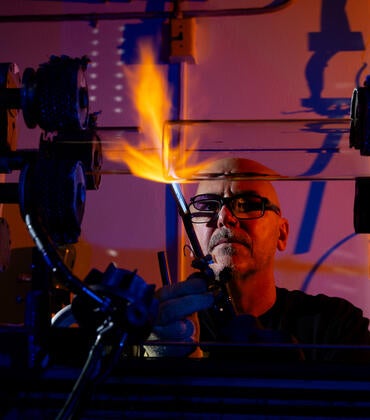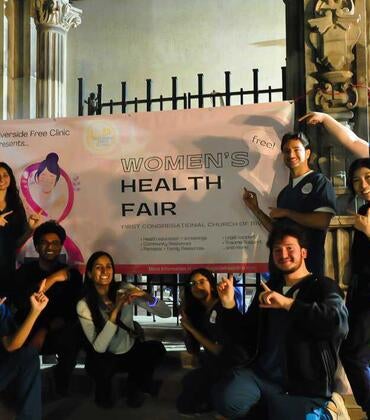Marilyn Corrales Arevalo, a second-year student at the UC Riverside School of Medicine, is a coauthor on a paper published this week in JAMA Network Open that sheds light on the special needs of stroke survivors.
Corrales Arevalo helped develop the study protocols; was one of the community workers delivering care to patients; and ran chronic disease self-management programs.
The research team randomized about 500 participants into either usual care or the intervention group. All participants were then followed for a year by a healthcare team consisting of a neurologist, physician assistant/nurse practitioner, and a community health worker.
Participants in only the intervention group were offered core components: several appointments in the adult primary care clinic, three community health worker home visits, chronic disease self-management workshops, telephone visits, and tailored educational materials. In contrast, the usual care did not include a designated team of practitioners, a community health worker, special workshops, or home visits.
“The primary outcome was to identify if the intervention improved mean systolic blood pressures at the twelfth month mark,” Corrales Arevalo said. “However, we found the intervention did not significantly lower blood pressure as compared to the control group.”
The results showed the intervention group reported less salt intake and had lower C-reactive protein levels at the twelfth month mark. The level of C-reactive protein, which can be measured in blood, increases with inflammation in the body.
“Those patients with higher chaos scores, as measured by life stressors, reported less engagement at all levels of interventions — clinic visits, workshops, compliance — than those with lower chaos scores,” Corrales Arevalo said.
Corrales Arevalo, who came to UCR from the Rancho Research Institute, explained that approximately one in four strokes are recurrent and can be prevented by lifestyle modification and appropriate medical intervention.
“Risk factor control among stroke patients remains poor, however, with only a small percentage reaching target goals,” she said. “This is especially true for low-income patients who have higher educational barriers. To address these barriers, our study incorporated culturally sensitive community workers into the healthcare teams to bridge the gap between the healthcare system and minority patients.”
The research paper is titled “Effect of a Coordinated Community and Chronic Care Model Team Intervention vs Usual Care on Systolic Blood Pressure in Patients With Stroke or Transient Ischemic Attack: The SUCCEED Randomized Clinical Trial.”





